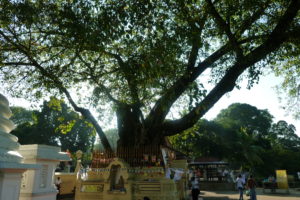A Buddhist sutra, ‘Book of the Great Decease‘ preserves for us several tellings of the historical Buddha’s life and death. Often, Buddha was referred to as Tathagata – One[He]Who Has Arrived – from the root “tatha” – just coming, just going. It was Cunda the Smith who delivered to Buddha his final meal, his “…just going” approximately five hundred years before the birth of Jesus the Christ.
We do not know how much truth or which version of the story concerning Cunda is true. However, more important than a specific mundane accounting is the philosophical and spiritual concepts that the fundamental story demonstrates about Buddha, the man, and his teachings. The schools of thought and interpretation of Buddha’s life, teachings, and death are many. I suppose all interpretations to be aspects of the one truth – and I only offer my own.
The Death of Buddha
Cunda delivered to Buddha a serving of boar’s meat. The story goes on to say that Buddha died from dysentery shortly thereafter. During his time of suffering before death, Buddha proved himself to be truly the Tathagata – one who has arrived at enlightenment, or the truth of the matter of life, death, and suffering. We feel this to be so, because in the midst of his suffering and facing his mortality, Buddha was most concerned and showed great compassion towards Cunda the Smith; he empathized with Cunda’s own suffering, out of wishing to share his abode and his food with Buddha, and without premeditation being the harbinger of his last meal. Calling Cunda to his deathbed, he told the poor smith that of all the meals he had eaten in his life of eighty years, only two did Buddha consider to be blessed.
The First Meal
The first meal was the food which Buddha ate under the Bo Tree after years of self-inflicted starvation and physical suffering in the hopes of achieving an esthetic albeit suffering enlightenment. Realizing that the middle path and not the extreme would lead to true awareness, Buddha ate, and it was that meal that allowed him to travel on the path to becoming the Tathagata.
The Second Meal
The second meal was this meat Cunda provided. Why? Knowing that he was ‘tatha’ – just coming, just going – and that he had learned and freely taught the best he had to offer, Buddha understood that his ‘just going’ time had arrived, and Cunda’s meal opened the doors to Nirvana! Nirvana, as used here, means ‘the final extinguishing of the flame’.
 Buddha wanted Cunda to understand that while it may appear that he, Cunda the Smith, was responsible for Buddha’s death, this was not so. The death of Tathagata came in the way of the Great Chain of Causation which expresses the true face of existence in its ever coming and going.
Buddha wanted Cunda to understand that while it may appear that he, Cunda the Smith, was responsible for Buddha’s death, this was not so. The death of Tathagata came in the way of the Great Chain of Causation which expresses the true face of existence in its ever coming and going.
We take with us from the story of Cunda and Buddha’s death a notion of what kind of mettle this man Buddha was made of, and that even on his deathbed he wished to practice compassion and teaching, and to help others to see their way past their own egoistic suffering.
Buddha teaches us all, through Cunda, that while we may struggle with life’s challenges, we need not suffer the agony and pain of the false ego if only we would realize that our true face is more than our individual finite self – it is the truth of the Great Chain of Causation expressing the true face of all existence, of which we are all aspects of that one which is coming and going.





